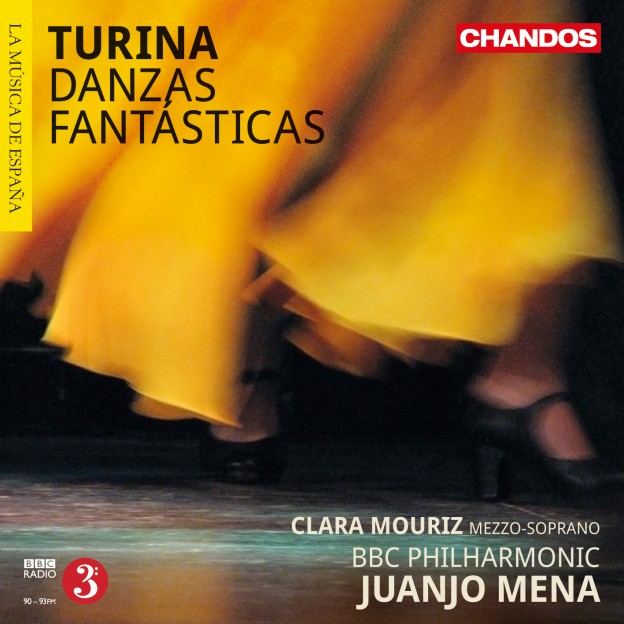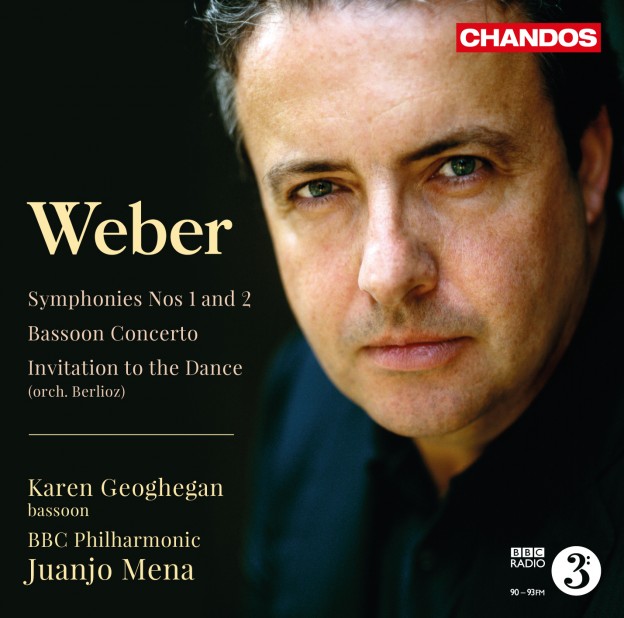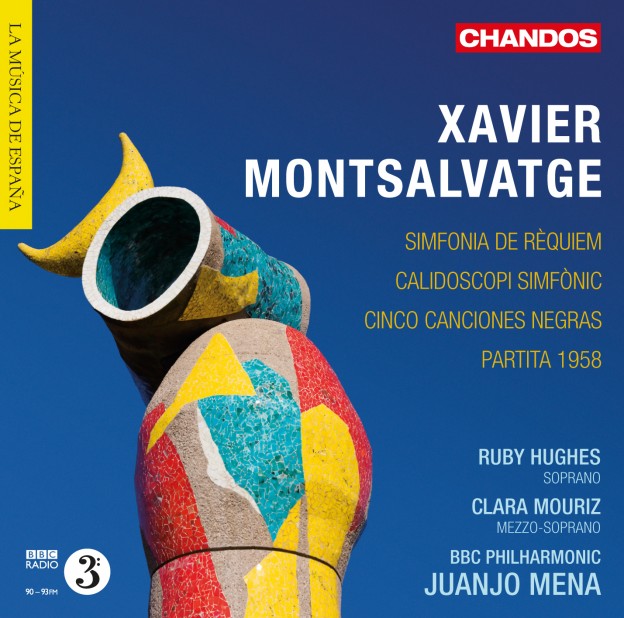
Author Archives: CS Admin


Spanish National Music Prize
2016
Spanish National Music Prize
2016




Juanjo Mena closes the Los Angeles Philharmonic’s season with a flourish
Following his debut with the Los Angeles Philharmonic in 2011, Juanjo Mena returned this year to lead the season’s closing concert at the Walt Disney Concert Hall on the 30th of May. Mena conducted works by Mozart and Brahms, which were enthusiastically received by the audience and the press.
A rave review in the Los Angeles Times, for example, noted:
“Juanjo Mena made his Los Angeles Philharmonic debut at the Hollywood Bowl in 2011. Clearly he was good enough to get a return engagement, so Mena, now 47, went indoors Thursday night and led some very impressive Mozart and Brahms in Walt Disney Concert Hall to close the 2012-13 season. (…) For Mozart’s Symphony No. 40, Mena – again working without a score – produced a markedly different texture, velvety yet clear, with the right voices brought forth at the right times, the emotion in the music pouring out without exaggeration. No matter how many times one has heard the symphony’s opening melody, Mena’s shaping made it sound fresh and moving again – and that’s a real achievement”.
The full review is available at the Los Angeles Times.
Original photo: Ricardo DeAratanha, Los Angeles Times.

“Juanjo Mena conquers America”, in El Correo
El Correo has just published an interview with conductor Juanjo Mena. In it Mena talks about his recent conducting appearances in the United States and the renewal of his contract with the BBC Philharmonic for another three years.
César Coca‘s article opens with:
Five years after leaving the Bilbao Symphony Orchestra, Juanjo Mena has conquered America. The native of Álava will close the Los Angeles Philharmonic’s season as guest conductor with a concert at the Walt Disney Hall, designed by Frank O. Gehry. It is the last of a four-concert series and the Los Angeles Times critic who attended Thursday’s concert heaped praise on the performance, going so far as to say that the ensemble reminded him of the era when Carlo Maria Giulini led the LA Philharmonic. Over the past few months, Mena has taken the podium to conduct the orchestras of Chicago, Boston, Cincinnati and Pittsburgh, and during the next few months he will appear with several other major orchestras in the United States. During all this, he continues to lead the BBC Philharmonic as chief conductor, a position that has been renewed for another three years.
The full interview is available in this PDF (no available online).

Turina: Orchestral works
This download forms part of Chandos’ ongoing Spanish Music series, performed by the BBC Philharmonic and its Chief Conductor, Juanjo Mena. Here the focus is on the orchestral works of the composer Joaquín Turina, one of the two leading Spanish composers of the twentieth century, the other being Manuel de Falla. Turina was a prolific composer, who in his sixty-seven years wrote more than one hundred works, in which he explored a wide range of classical genres, from symphonic music, solo piano pieces, and vocal works to ballet scores and chamber music. Most of these show the influences of traditional Andalusian music – often conveying feelings of rapture and immense exaltation – while also owing a debt to a range of French composers.
Reviews
“…In all the music on this well-filled disc you will hear a style of Impressionism that is not cool and misty but ablaze with heat and light. The BBC Philharmonic relish Turina’s textures under Mena’s idiomatic direction, and typically rich Chandos sound is everything one could wish. This is well worth collecting alongside Mena’s previous discs of music by Falla and Montsalvatge…”
“…With the exception of the moderately paced Saeta the remaining works generally inhabit a similar sound-world. Turina’s highly rhythmic and vivid coloration combined with his passionate approach invariably produce steamy evocations of baking Spanish sunshine. With infectious enjoyment Mena and the BBC Phil ideally capture the expressive mood of these joyous scores. Produced at MediaCity UK, in Salford this open and clear recording ticks all the right boxes.”
“…The three vocal items here are novelties … They are sung with ravishing sweetness of tone by Clara Mouriz, who sounds born to sing them… The orchestra’s playing and Chandos’s sumptuous sound place this new disc in the front rank …”
“… As an introduction to an unfairly neglected composer, this disc couldn’t be bettered. It’s also very nicely recorded.”
“… An early contender for one of my discs of the year and if this does not feature in other similar lists and awards I will be surprised. Simply magnificent and a must-hear for all those with a penchant for all things Spanish and ripely orchestrated.”
“… Warmly recommended.”
Tracks
|
CD available From: 01 February 2013
|
|||||||||||||||||||||||||||||||||||||||||||||||||||||||||||||||||||||||||||||||||||||||||||||||||||||||||||||||||||||||||||||||||||||||||||||||||||||||||||||||||||||||||||||||||||||||||||||||||||||||||||||
|

Weber: Orchestral works
Weber: Invitation to the Dance (orch. Berlioz); Symphonies Nos. 1 and 2; Bassoon Concerto – Karen Geoghegan (bassoon), BBC Philharmonic, Juanjo Mena
This is the fourth release by the BBC Philharmonic under its Chief Conductor, Juanjo Mena, and the discography is going from strength to strength – their recording of orchestral works by Falla was ‘Recording on the Month’ in BBC Music. They are joined on this recording by the bassoonist Karen Geoghegan.
Weber wrote the waltz Aufforderung zum Tanze (Invitation to the Dance) in 1819, around the time when he was also working on the opera Der Freischütz. The two works crossed paths once more, in 1841, when the latter was performed at the Opéra de Paris. Berlioz had been commissioned to orchestrate Aufforderung zum Tanze so that it could be incorporated into the opera, and he did so by melding Weber’s polished and elegant original with his own sound world, with customary panache. It is the version included on this disc.
Also featured are Weber’s Symphonies Nos. 1 and 2. That these works should be so neglected is partly down to historical accident; they were composed just four years after Beethoven’s monumental ‘Eroica’ Symphony, the work which ditched the rulebook once and for all, and which turned the genre from classical perfection into a personal musical manifesto. So when Weber’s symphonies saw the light of day, overshadowed by the great master, no one took much notice. However, these works are brimming with melody and invention and are unfailingly entertaining.
Also on this disc is the composer’s Bassoon Concerto. Much of the work’s appeal derives from Weber’s ear for sonority, and in particular the dark-hued palette natural to the bassoon. The finale has the bassoon playing a jester of great agility, yet with enough elegant touches to dispel any clichéd ideas of the instrument as a figure of fun. The movement builds to an assured and almost reckless virtuoso ending. Karen Geoghegan is the soloist in this work. Gramophone said of this young artist that ‘lyrical, mellifluous playing seems to come as naturally as wit and charm’.
Reviews
"…Highly recommended."
Performance **** Recording *****
"…They [the symphonies] make genial listening and the BBC philharmonic under Juanjo Mena provide an interesting programme, beginning with invitation to the dance orchestrated by Berlioz, and between the symphonies Karen Geoghegan plays the bassoon concerto, Chandos do well to give us this near forgotten repertoire."
"… superbly prepared, played and recorded … A winner."
“…These are lively, virtuoso performances of works of considerable originality in compostion … Karen Geoghegan gives a delightful performance of a work (Bassoon Concerto) that respects the innately lyrical tone of the instrument, and fills the finale with wit while avoiding any clowning ..”
Tracks
|
CD available From: 01 October 2012
|
|||||||||||||||||||||||||||||||||||||||||||||||||||||||||||||||||||||||||||||||||||||||||||||||||||||||||||||||||||||||||||||||||||||||||||||||||||||||||||||||||
|

Montsalvatge: Orchestral Works
This album of orchestral works marks the centenary in 2012 of the birth of the Catalan composer Xavier Montsalvatge.
It is released as part of our Spanish music series, conducted by Juanjo Mena, a fellow Catalan national and Chief Conductor of the BBC Philharmonic. Montsalvatge was one on the most influential musical figures in Catalan music during the latter half of the twentieth century. He explored virtually every musical form, but many of his most significant works, including Cinco Canciones Negras (Five Negro Songs), were written after his discovery of the art of the Antilles. He was fascinated by West Indian music, which, as he wrote, ‘was itself originally Spanish, exported to the Caribbean, and then re-imported’. In Cinco Canciones Negras for mezzo-soprano and orchestra he set a varied collection of poems from the Caribbean and Spain, adopting the captivating rhythms of the West Indies. ‘Canción de Cuna para Dormira a un Negrito’ can only be described as one of the tenderest lullabies in the repertoire, presenting a vivid contrast to the exhilarating display of rumba-like rhythms in ‘Canto Negro’.
Partita 1958, which, in the words of Montsalvatge, is ‘not entirely unrelated to classicism’, is strongly inspired by the works of Darius Milhaud, who had discovered the intoxicating rhythms of Latin-American music during the First World War, and had introduced them into his own compositions to sensational effect in the 1920s.
Calidoscopi simfònic derives from an early, unfinished ballet, El Angel de la Guarda (The Guardian Angel). The impressionistically evocative introduction is irresistible evidence of Montsalvatge’s genius as a ballet composer, while the finale is an uninhibited celebration of primitive rhythms with thudding percussion, snarling trombones, uproarious trumpets, and, in the slower middle section, a characteristically melodious cor anglais.
In spite of his immense creativity, Montsalvatge never wrote a mass or a symphony. In 1985, however, he did combine the two genres in a symphonic version of the Requiem Mass, the Simfonia de Rèquiem, which features no words and no voices until the very end of the last movement. Montsalvatge intended ‘to ignore the orthodox religious aspect and to concentrate on bringing out its profound, forceful message, which is both sad and sublime, by the means of the orchestra’.
Reviews
“… I am delighted with this disc of first-rate music and I heartily recommend it.”
"…The recorded sound has been perfectly judged throughout this excellent disc. For those curious about the composer and his very personal, diverse music this is an excellent place to start. It has his most celebrated music and some of his best too."
“…These performances have been stunningly captured by a recording of exemplary clarity and spaciousness, with huge dynamic range, and Gerald Larner’s notes provide a helpful introduction to the composer and the music. Anyone seeking something a little different shouldn’t hesitate over this release: it would be difficult to imagine any prospective purchaser being disappointed.”
"…Montsalvatge’s music at its best suggests a piquant plate of patatas bravas. His four-movement Partita 1958 is an engaging, spiky work, the bitonal passages betraying his fondness for the music of Darius Milhaud. The Cinco Canciones Negras are the most immediately appealing piece s on this Chandos disc. Each song is a sun-drenched gem, sung with gorgeous aplomb by Spanish mezzo Clara Mouriz, capable of reduing her voice to an imperceptable whisper when needed… All performed with panache. More please."
"Performances and recording are excellent and up to Chandos’ best standards. A most welcome introduction to Montsalvatge’s world and a superb tribute to the composer in his centenary year."
"…This is a wise and moving work. Juanjo Mena directs admirable, wholly idiomatic performances. A valuable disc for anyone interested in Catalan music of the 20th century,"
“…The performances are immensely persuasive. Ruby Hughes sounds suitably seraphic in Simfonia de Rèquiem, but the vocal honours go to Clara Mouriz, tremendous in Cinco Canciones.”
Tracks
|
CD available From: 01 September 2012
|
||||||||||||||||||||||||||||||||||||||||||||||||||||||||||||||||||||||||||||||||||||||||||||||||||||||||||||||||||||||||||||||||||||||||||||||||||||||||||||||||||||||||||||||||||
|

